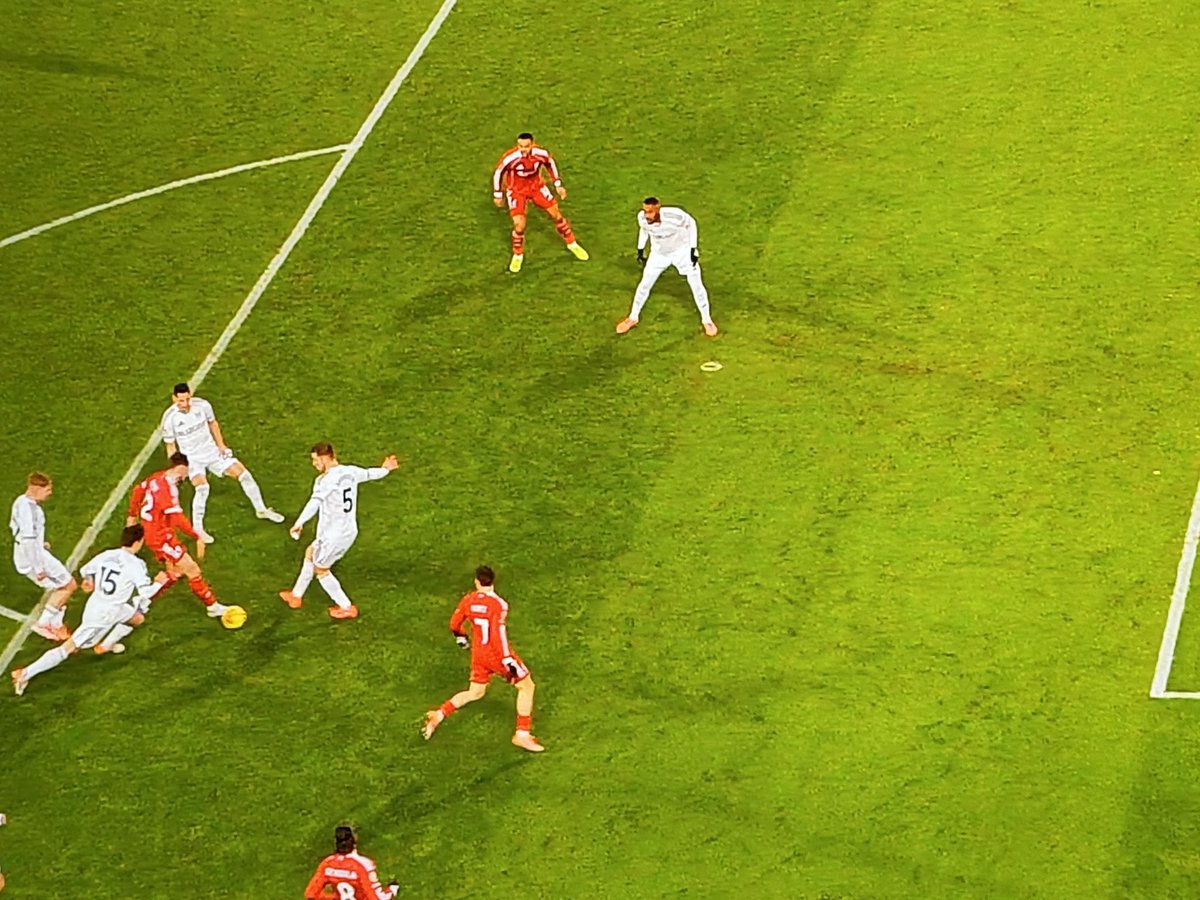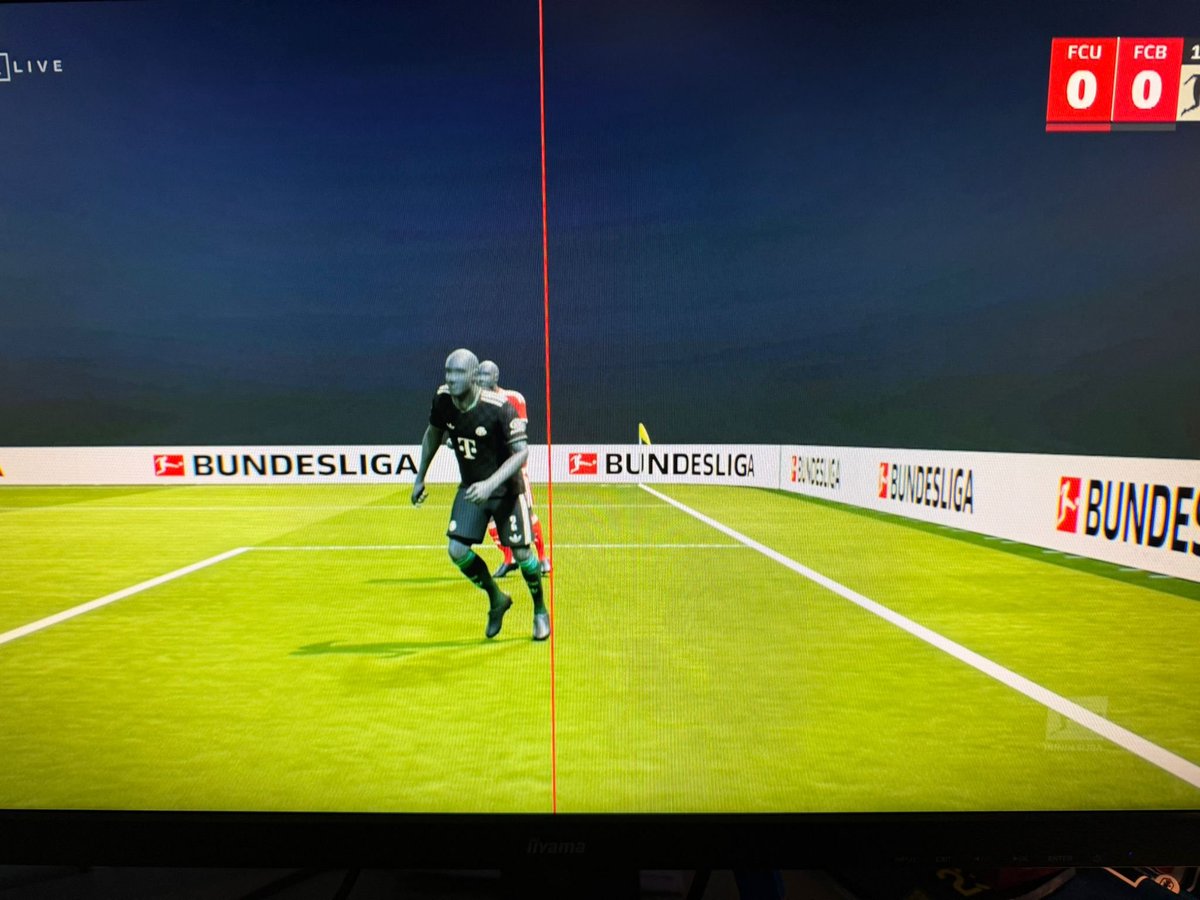Few tweets on FIFA taking over the management of the VAR project from the IFAB, and what it really means the Premier League (including a mention of the Harry Kane penalty claim).
But first, remember this. FIFA says the implementation of VAR has been a "universal success".
But first, remember this. FIFA says the implementation of VAR has been a "universal success".
By taking over control of the VAR project, what FIFA really wants to do it make sure all associations are doing it the same way.
So it doesn't want the Premier League not using monitors, not penalising the GK off the line on pens, etc.
So it doesn't want the Premier League not using monitors, not penalising the GK off the line on pens, etc.
The new Laws of the Game, which will come into force in the Premier League at the start of next season, had already removed ambiguity over use of monitors in the VAR protocol.
So, in effect, FIFA taking control is not a catalyst for the PL using monitors. This is already set.
So, in effect, FIFA taking control is not a catalyst for the PL using monitors. This is already set.
FIFA taking control only really means that it will set expectations that leagues will follow the protocol.
Several comps (not just PL) do not penalise the keeper for being an inch off the line on a penalty.
It's a bad law change, but the law will likely be enforced now.
Several comps (not just PL) do not penalise the keeper for being an inch off the line on a penalty.
It's a bad law change, but the law will likely be enforced now.
One thing FIFA cannot do is change the subjective decision making of referees, or the competence of referees in individual leagues.
Yes, FIFA does control the education of referees globally. But there is a big step to changing the level of ability - certainly in the short term.
Yes, FIFA does control the education of referees globally. But there is a big step to changing the level of ability - certainly in the short term.
Take today's decision on the Harry Kane penalty. This is the process.
If the referee, Paul Tierney, tells the VAR, Michael Oliver, that he had a clear view of the incident and did not feel there was sufficient contact for Kane to go down, there will be no penalty. #BOUTOT
If the referee, Paul Tierney, tells the VAR, Michael Oliver, that he had a clear view of the incident and did not feel there was sufficient contact for Kane to go down, there will be no penalty. #BOUTOT
The Premier League's high bar, and refusal to use the monitors on subjective penalty decisions, means that any possible overturn sits with the VAR and how he interprets what the match referee has seen.
This alone makes it much more difficult for an overturn to happen.
This alone makes it much more difficult for an overturn to happen.
This becomes a bigger problem if referees are missing more big decisions than you might expect in an elite league.
VAR seems better in the UCL, for example, because that competition only uses top referees.
Once you get to league level, ability and consistency will be lower.
VAR seems better in the UCL, for example, because that competition only uses top referees.
Once you get to league level, ability and consistency will be lower.
So the use of monitors will undoubtedly be a positive addition, both for the accountability of referees and acceptance from fans.
But it's going to come down to two key things
1) Officials being good, as refs and VARs
2) How high the "bar" will be in the Premier League
But it's going to come down to two key things
1) Officials being good, as refs and VARs
2) How high the "bar" will be in the Premier League
Premier League referees have tied themselves up in knots over this high bar, and the lack of monitors.
It's the perfect storm of the VAR not being sure if he should overrule the referee, but not having the safety net of asking the referee to take a look himself.
It's the perfect storm of the VAR not being sure if he should overrule the referee, but not having the safety net of asking the referee to take a look himself.
But FIFA taking charge isn't going to stop the goals being disallowed for tight offsides, minor handballs and such like.
FIFA will be about consistency of application. The leagues themselves are still going to have to get this right "on the ground."
FIFA will be about consistency of application. The leagues themselves are still going to have to get this right "on the ground."
• • •
Missing some Tweet in this thread? You can try to
force a refresh






